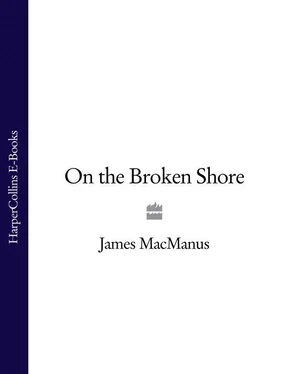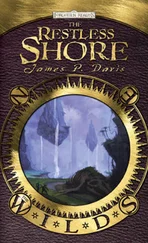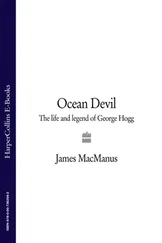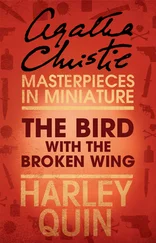He explained that this world of theirs was a water planet. Their forebears had crawled from the oceans millions of years ago and begun to climb the evolutionary ladder. Many millions of years later, when man first emerged from the African rain forest on to the savannah and was forced to stand upright – some five million years ago – the marine mammals, the seals, dolphins and whales he had left behind in the sea, were fully formed and living in a complex ecosystem that had sustained them and us ever since.
‘Yet throughout human history we have slaughtered those mammals, and today we have gone a step further. We have begun to destroy the environment on which this planet depends – its oceans. We are urbanising and industrialising the great seas of the world.
‘So as you progress through your studies, I want you to remember that our future on this planet depends not on the exploration of space – important though that is – but on understanding the oceans that surround us and first gave us life, and still do today.’
Leo paused at the top of the staircase. Twelve heads had now turned, necks craned to keep him in sight. Was that a flicker of interest down there? Had his words triggered the smallest thought processes in those heads? Probably not.
He walked back to the podium.
‘What I want to talk about today is the language of sea mammals, and especially seals. Until recently we did not know that they communicated at all. Now we do know that whales, dolphins and seals all have their language, but we don’t know how they use that language. These are highly intelligent creatures – we know that – but how are we to decode the intelligence in those remarkable brains?’
A few pens were moving across the big spiral-bound notepads. It was always the girls first. Then the boys would follow suit. Pretty girls, too. Mostly American, but some from Finland, Norway and Japan, where they took marine science seriously. So seriously in Norway that they slaughtered seals as vermin and even ate them.
Leo decided to wake the class up.
‘We’re going to take a break,’ he said, and pressed a switch.
They all stirred, even the boys.
The room darkened. The students sat up, suddenly interested; a screen came down at the touch of a button.
‘You are here to study marine biology. Why? Because the oceans around us hold the key to our survival on earth?
‘Maybe.
‘Because the seas cover four-fifths of the earth’s surface, and we know so little about how they work?
‘Definitely.
‘And perhaps because we need to get hold of this fact: twenty-first-century science, science that can take a man to the moon and land a machine on Mars, cannot answer some fundamental questions posed by our oceans. Why not? Take a look at this.’
Leo pressed a switch. He loved and hated the Institute in almost equal measure, but on the love side came a real respect for the technology bought by all those endowments. Things really worked. Back at St Andrews University in Scotland where he had begun his career some eighteen years earlier, you were lucky to find a slide rule that worked.
The screen glowed into life, showing a snowy landscape. The camera tracked to the foreshore of a broad, tree-lined estuary, with a soundtrack of running water and wind in the leaves. It then zoomed in on a group of wading birds the size of small seagulls. The birds had brownflecked plumage, long legs and curved beaks. They walked slowly along the water’s edge, pausing to stab their beaks into the soft mud and then throwing their heads back to swallow whatever morsel they had found below the surface. Suddenly alarmed, the flock wheeled as one into the air, their outsize wings lifting them rapidly away from whatever danger they had perceived.
A voice-over said: ‘The bar-tailed godwit has been tracked by the Pacific Shorebird Migration Project via satellite tagging, and has been proved to be the world’s avian migratory champion, flying further non-stop than any other migrating bird. The godwit flies 10,200 miles south from its breeding ground in Alaska without stopping in flight. It can make the flight in seven days with the benefit of a tailwind, and can return north in nine days. Incredibly, godwit chicks can make the southbound flight when only two months old. These are amazing journeys, which the latest technology has allowed us to track and feed into our ongoing research into migration patterns.’
Kemp flipped a switch, and the lights came back on.
‘OK, what’s missing there?’
A hand went up. It would be him. That studious boy from Michigan, Jacob Sylvester, a state scholar. Leo had met his new students at an induction class. He always tried to spot the ones that were going to make something of the subject but it was difficult. Sometimes the shy, silent types produced original thinking in their coursework while the pushy talkers simply regurgitated everything they had read.
Sylvester was a talker; he asked all the right questions and took notes in laborious longhand. He had a Ph.D. and academic career stamped all over him. Rachel Ginsberg wasn’t really shy but she pretended to be and looked at the floor while asking complex questions about the marking of grades. She would flash him quick looks from under long eyelashes to see if he was listening and smile slightly when he nodded her to go on. He sensed she was very ambitious and he knew her foxy-faced good looks would take her up the corporate ladder in some big company.
Then there was Gunbrit Nielsen, very serious, very pretty, with slate-grey eyes and a long plaited pigtail. She was far too beautiful to be sitting in anyone’s class studying marine biology. She should be on a movie set on the west coast. But here she was in his class working for a Ph.D. that would take her back home to a teaching job in Sweden, marriage to a man with a thick red beard and four children.
He would get to know them well over the course of the year and would watch to see how, just as in the wild, a natural leader emerged from the group. Already they seemed to take their lead from Sylvester, letting him ask the questions.
‘Sea mammals, sir. This isn’t our subject,’ said Sylvester.
Leo snapped out of his reverie.
‘Well, clearly a godwit is not a seal, Mr Sylvester. Let me repeat the question: what is missing from that commentary? Something important, really important, that has been left unsaid?’
Silence, heads lowered, sidelong glances: What’s he talking about? When’s the break?
‘OK, here goes. What that commentary did not tell you is that those birds, the godwits, make their migrations without food or water, flying huge distance for seven days southbound and nine days northbound. It didn’t tell you that because we don’t know how they do it. No one knows.
‘Scientists’, he continued, ‘cannot explain the godwit’s ability to lift and transport its body weight of eight to ten ounces for that distance without in-flight refuelling. And science does not like the irrational. The flight of the godwit is incomprehensible to science, because science tells us, and the naturalists tell us, and the nutritionists tell us, that a small bird like that cannot fly such a distance without sustenance.
‘We know that swifts and swallows make similar journeys, but they eat their natural food – flying insects – on the wing. Godwits do not. Their food – worms and molluscs – lies beneath the sand on the shoreline. And there are no shorelines at ten thousand feet. They should not be able to survive their annual migration. But they do.
‘Mr Sylvester.’ Leo pointed to him, arm outstretched, finger extended.
‘Yes, sir?’
Leo had the class now; he loved it when he made a breakthrough and grabbed the attention of those mediachoked minds, brains buzzing with electronic music, video games, sex, sport and fast food. Cut through the media dazzle with some original godwit-thinking and you find that there is life in the interior of their minds; thin soil maybe, but enough to plant the seed of thought.
Читать дальше












